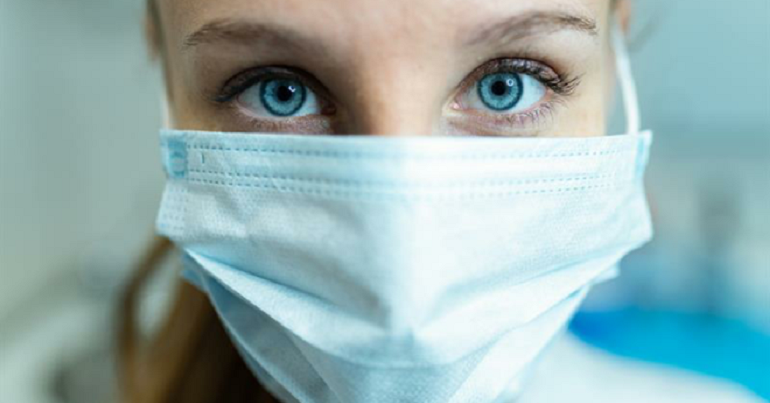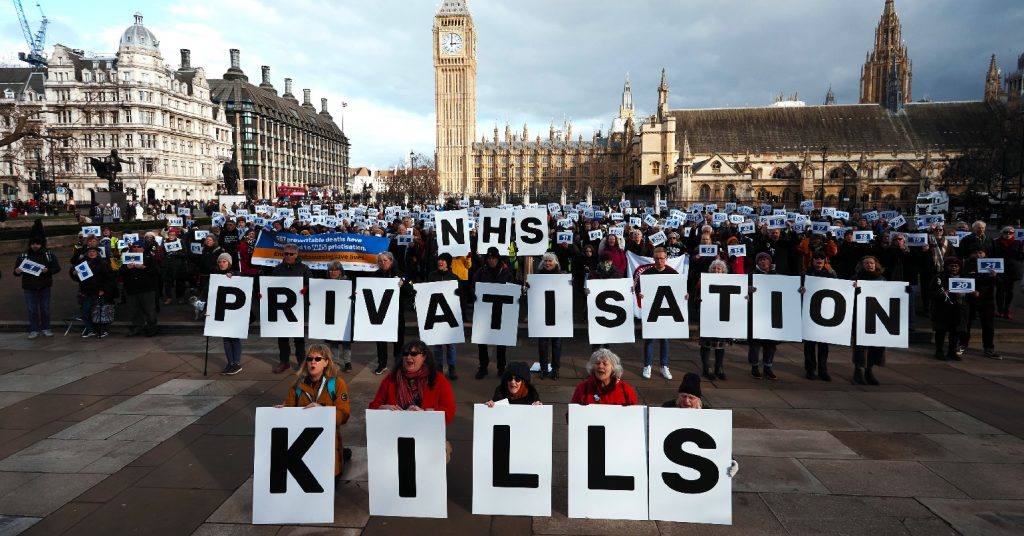Frontline workers deserve honest answers about their PPE concerns

Like most people in the UK, I’ve been hearing for weeks reports from medical professionals and care workers about their concerns about the lack of personal protective equipment (PPE), but it was a conversation with a nurse from a hospital in the North West of England that led me to focus on the issue.
I’m going to call her Lee, although that’s not her name, for she spoke to me only with the assurance that I would protect her identity and ensure that her employer did not know she had been speaking to me.
This in itself is disturbing. For I’d have to say the account she gave to me could only be called whistleblowing, an action that we apparently have laws to protect.
Her concern was that staff are being told to use a number of clinical practices that previously would have led to the hospital failing an inspection, and that she feels in her professional judgement are putting the staff and patients at risk.
She hears reports from other parts of the developed world of how their hospitals are operating, and feels we are severely lacking in infection control and other procedures.
Unsafe practices
These are a number of the key issues she raised with me.
First of all, staff are being told they can only use fit-tested masks with patients who have tested positive for SARS-CoV-2, not every patient who a reasonable assessment would judge is likely to be infected. Even more worryingly, staff have been given masks that have three successive out-of-date stickers on them spanning the last six years. Her information is that some masks being used in this way have been retested, but she hasn’t been able to get that reassurance for the supplies her hospital is using.
Secondly, normal clinical practice is for surgical masks to be used for one patient and discarded, but staff have been told to use repeatedly because they don’t have enough.
Third, staff are being told to only wear long-sleeved gowns when treating confirmed positive Covid-19 patients, having for others only an apron that does not protect the arms, back or chest.
Staff are also being told they are not allowed to wear hair-nets in most situations, even when they believe it is clinically appropriate.
And a particularly worrying issue is that staff are not being allowed to test patients, or themselves, when they consider it clinically appropriate. Staff members are even being reprimanded for self-testing even though the test came back positive for SARS-CoV-2.
She and other staff have been told they will be subject to disciplinary procedures should they go public about these issues.
What is the government doing about this?
As a result of our conversation, I wrote on Tuesday afternoon to Lord Bethell, who speaks for the government in the House of Lords, asking for an urgent response to the following questions:
- What is the clinical basis of the changes to normal hygiene practice? Frontline staff feel the need to know why this is suddenly acceptable. What studies or information are these decisions based on? If it is a rationing system, how is the rationing process being decided? When and how will it end?
- When will medical staff be allowed to order a SARS-CoV-2 test for every patient (and fellow staff member) they consider it to be clinically appropriate for? Is this budgeted for and planned for in terms of testing capacity?
- Why are staff being threatened with disciplinary procedures for going public? As whistleblowers, should they not be protected?
I have not had that response.
In the meantime, there have been more disturbing developments. In a statement to the Health Select Committee, the Royal College of Nurses has said: members “are facing impossible decisions” between protecting their health and their sense of duty because they do not have enough personal protection equipment. That reflects what Lee told me.
The Marie Curie cancer charity has also told the Independent that it has had to stop staff visiting cancer patients because of a lack of PPE.
But there has been one positive one. The Scottish government announcing a dedicated email address by which health and care staff can directly report their PPE concerns to officials, while senior ministers were meeting with the local government association and unions yesterday afternoon to discuss the issue.
What a contrast to the situation in Westminster, where we have heard senior minister after senior minister airily respond to questions along the lines of “no, it is fine, there’s plenty, move along nothing to see here”.
That’s clearly untrue. But starting from the point we are today, shortages, and maybe changes, are probably unavoidable.
When you have Donald Trump’s US hijacking shipments of masks from China that were destined for France, the coronavirus pandemic is clearly threatening us in ways unplanned for and unconsidered.
The post-mortem about why we are here is for another day. What needs to happen now is transparency, honesty and trust from the government for our health and care professionals about what is available, how it is being allocated, and on what basis advice to them is being made.
Maybe those thrice-relabeled masks really are adequate for the task. Maybe the best evidence about the particular characteristics of SARS-CoV-2 as we now understand them are reasonably tackled with the PPE provision available to staff.
My second year university microbiology from 30 years ago doesn’t allow me to make a reasonable judgement, although I could listen to the fear and concern in Lee’s voice, her up-to-date clinical judgement, and be very concerned.
Airy assurances from a Westminster press conference won’t cut it.
What we need to see is Westminster heading in the direction of the Scottish government, listening to the concerns of health workers like Lee, rather than threatening them with the sack for speaking out.
They are the front line. They are the people risking their lives. They deserve, at a minimum, honest, evidenced answers to their concerns.
Image credit: JWD Removals – Creative Commons




Leave a Reply